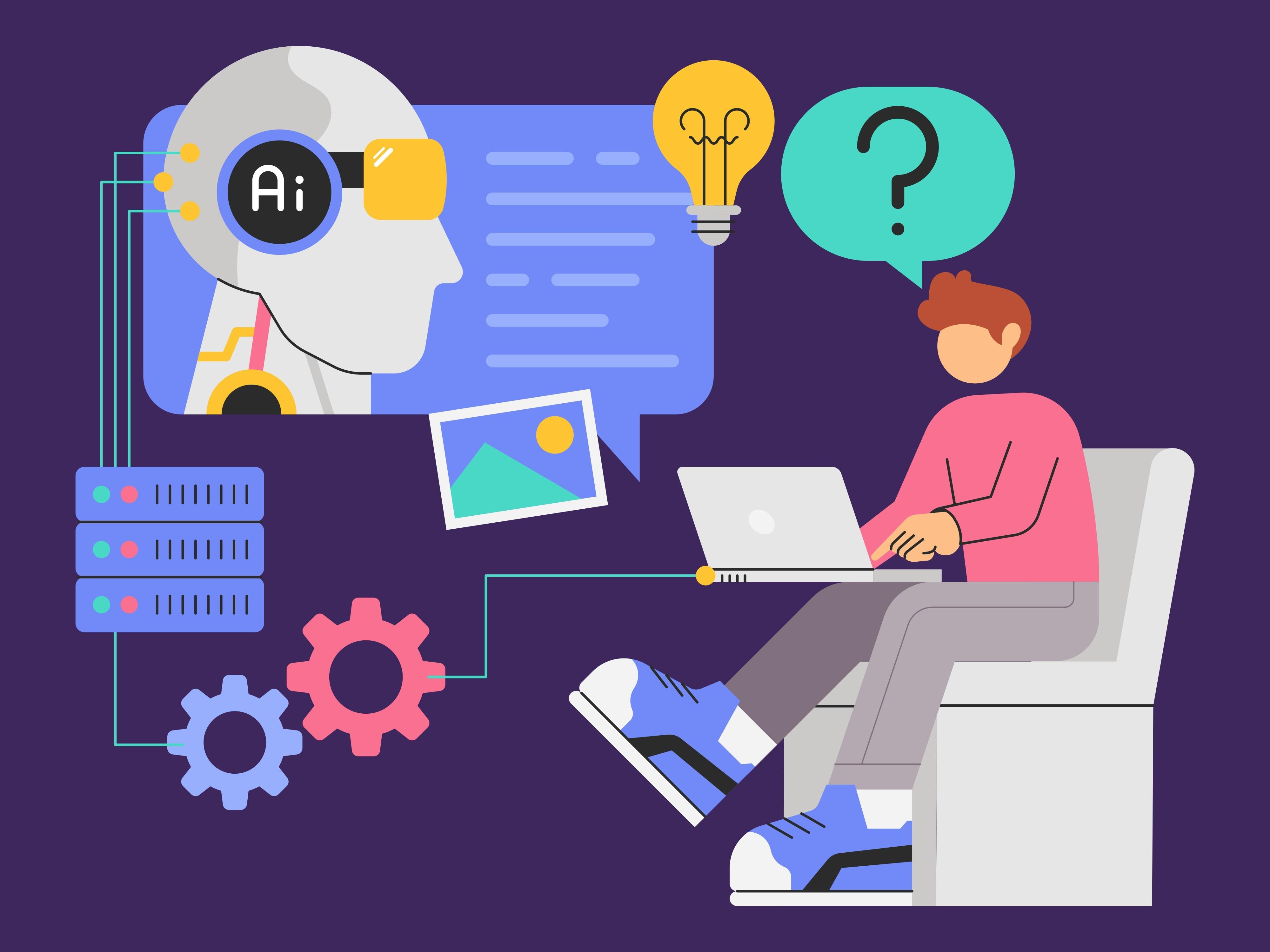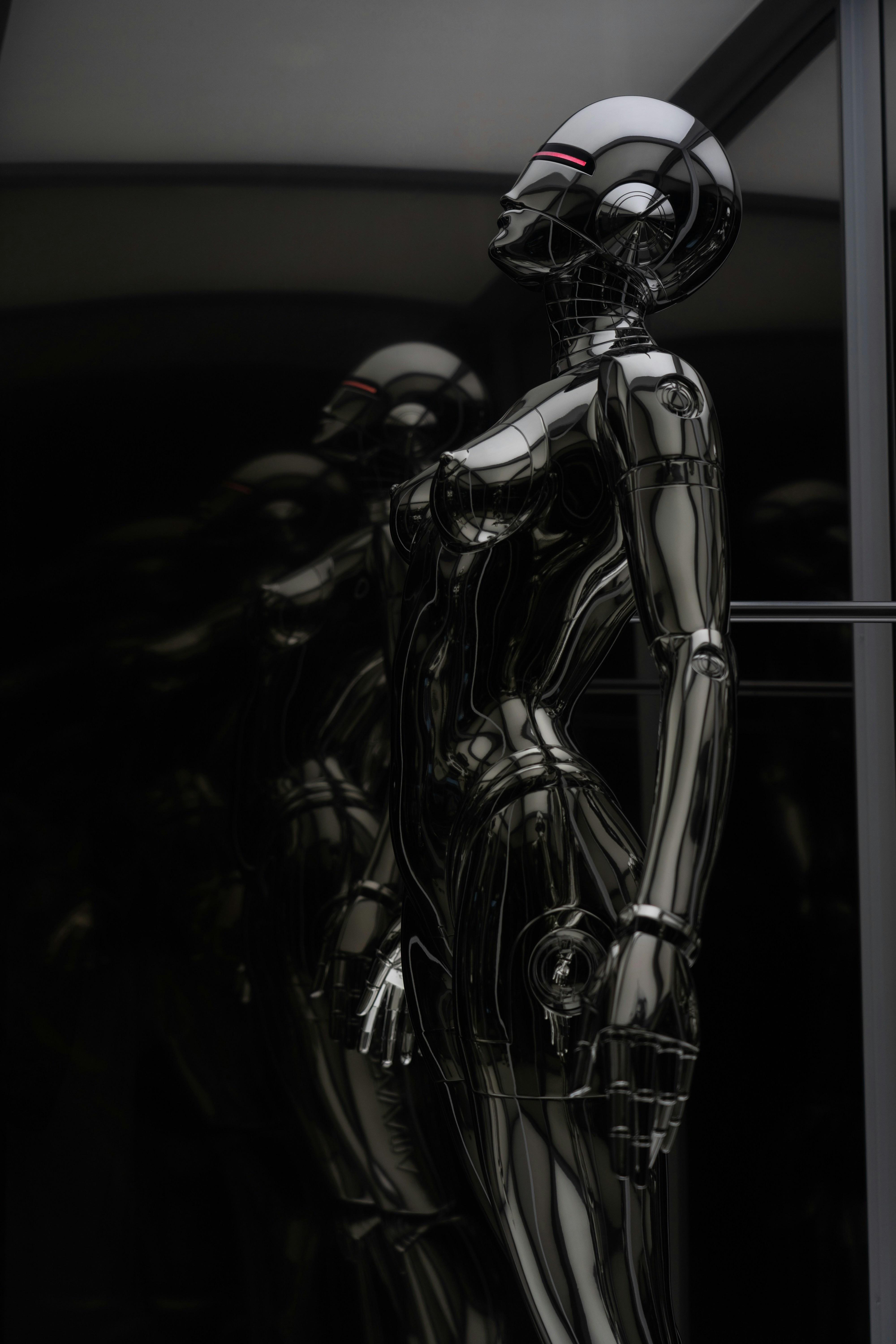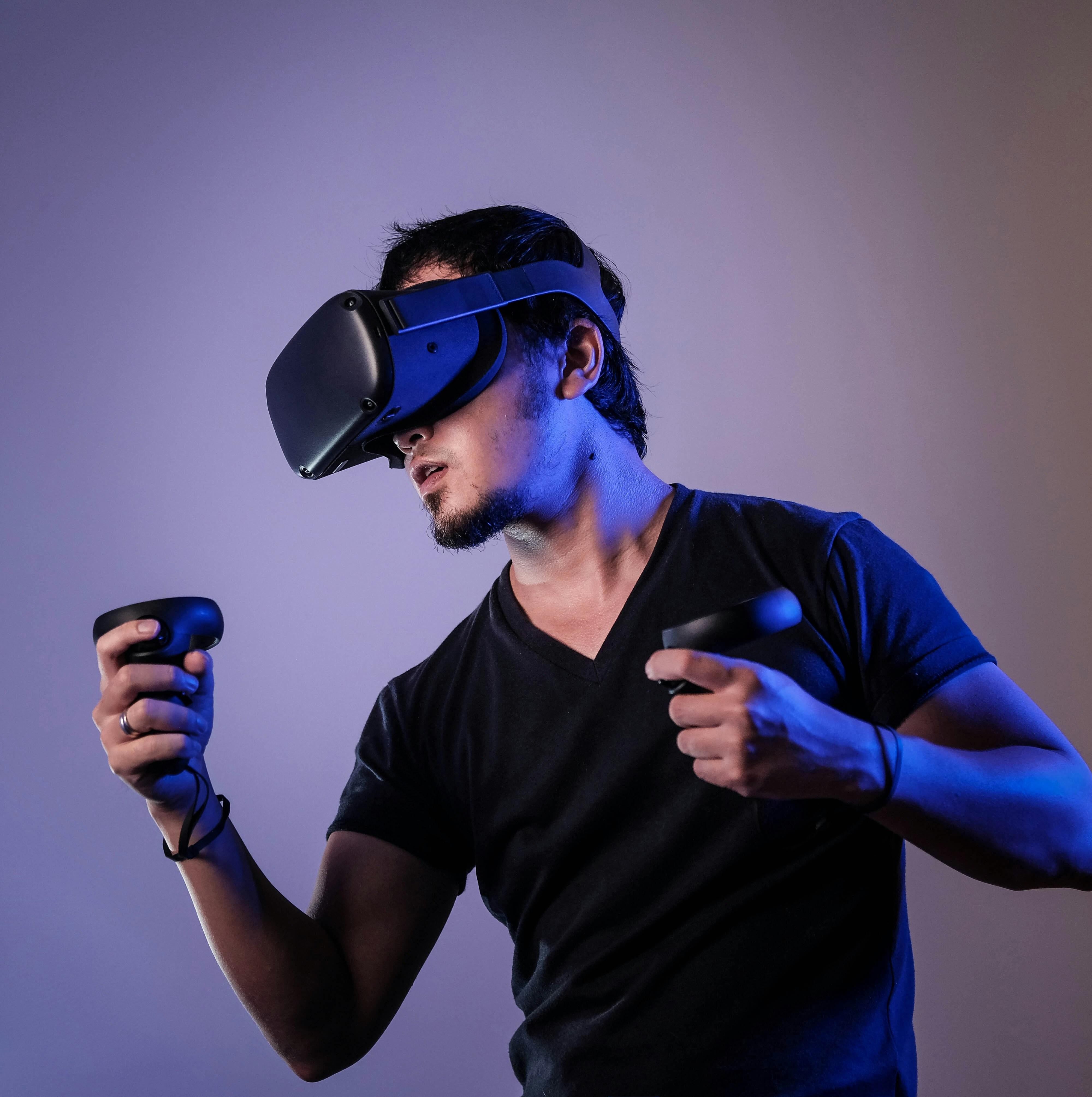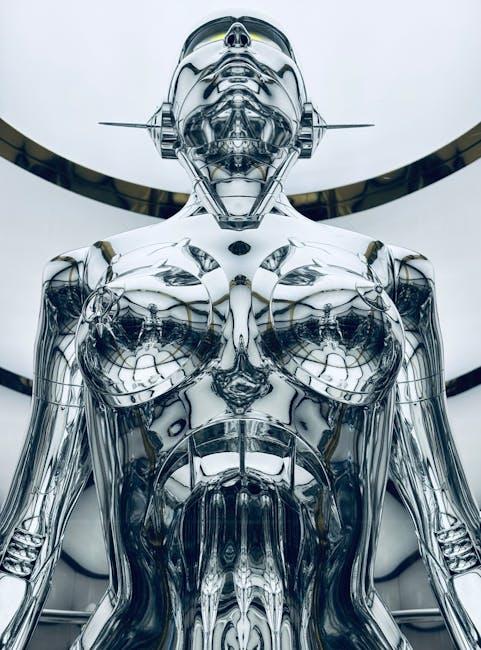
In 2025, artificial intelligence (AI) agents are poised to redefine the landscape of work and daily life, transitioning from experimental concepts to integral components of our professional and personal routines. These autonomous digital assistants are set to handle a myriad of tasks, from streamlining business operations to offering personalized support in our everyday activities. As AI agents evolve, they promise to enhance efficiency, foster innovation, and reshape our interactions with technology, ushering in a new era where intelligent systems work alongside us to achieve shared goals.
Table of Contents
- AI Agents Redefining Professional Landscapes
- AI Agents Enhancing Daily Life
- Ensuring Ethical Integration of AI Agents
- Preparing for the Future with AI Agents
- Q&A
- Insights and Conclusions

AI Agents Redefining Professional Landscapes
In 2025, AI agents have become integral to professional environments, automating a wide array of tasks and reshaping traditional workflows. These intelligent systems are now capable of independently handling responsibilities such as:
- Customer support automation
- Enterprise workflow management
- Cybersecurity threat detection
- Business intelligence analysis
By taking over these functions, AI agents allow human workers to concentrate on more complex and creative aspects of their roles, thereby enhancing overall productivity and job satisfaction. (en.wikipedia.org) The integration of AI agents has also led to the emergence of new business models and job categories. Companies are now developing specialized AI-driven solutions,such as Software-as-a-Service (SaaS) products,to meet the growing demand for automation. This shift has resulted in the creation of numerous AI-focused startups and has spurred innovation across various sectors. However, this rapid adoption also brings challenges, including the need for robust oversight to ensure ethical AI deployment and to address concerns about job displacement. (ft.com)
AI Agents Enhancing Daily life
In 2025, AI agents have seamlessly integrated into daily routines, offering personalized assistance that adapts to individual needs.These intelligent systems manage a variety of tasks, including:
- Personalized meal planning – crafting weekly menus based on dietary preferences and nutritional requirements.
- Health monitoring – analyzing biometric data to provide real-time health insights and recommendations.
- Home automation – controlling smart home devices to optimize energy usage and enhance comfort.
By handling these responsibilities, AI agents free up valuable time, allowing individuals to focus on more meaningful activities. Their ability to learn from user interactions ensures that the assistance they provide becomes increasingly tailored and effective over time.
Beyond personal tasks,AI agents are revolutionizing professional environments by:
- Automating routine administrative duties – scheduling meetings,managing emails,and organizing documents.
- Enhancing decision-making processes – analyzing large datasets to uncover trends and inform strategic choices.
- Facilitating continuous learning – recommending courses and resources to support skill growth and career growth.
These advancements not only boost productivity but also contribute to a more balanced work-life dynamic, as AI agents handle time-consuming tasks with efficiency and precision.

Ensuring Ethical Integration of AI Agents
As AI agents become increasingly integrated into various sectors, it is indeed imperative to establish frameworks that ensure their ethical deployment. A multidimensional approach combining ethics with regulation, innovation, and education is essential. This approach emphasizes:
- Integrated Values: Aligning AI systems with the association’s ethical identity.
- Trust and Clarity: Implementing governance and accountability measures.
- Empowering Human Growth: Focusing on human-centered design and continuous training.
- Identifying Strategic factors: Ensuring adaptability to technological and market changes.
By embedding these principles, organizations can foster responsible AI integration that respects and promotes human values. ([arxiv.org](https://arxiv.org/abs/2405.01697?utm_source=openai))
To further enhance ethical AI practices,the development of customizable guardrails is crucial. Tools like Nvidia’s Llama Guard and Preamble’s platform focus on improving the safety and alignment of large AI models. These systems aim to address issues such as algorithmic bias, misuse, and vulnerabilities, including prompt injection attacks, by embedding ethical guidelines into the functionality of AI models. By implementing such guardrails, organizations can ensure that AI agents operate within defined ethical boundaries, mitigating potential risks and fostering trust among users.([arxiv.org](https://arxiv.org/abs/2502.18359?utm_source=openai))

Preparing for the Future with AI Agents
As AI agents become increasingly integrated into various sectors, it’s essential to consider the implications for the workforce. While these agents can automate routine tasks, they also create opportunities for new roles that require human oversight and strategic input. To prepare for this shift,individuals should focus on developing skills that complement AI capabilities,such as critical thinking,creativity,and emotional intelligence. This approach ensures a harmonious collaboration between humans and AI agents, leading to enhanced productivity and innovation.
Organizations must also adapt their structures and cultures to fully leverage AI agents.This involves investing in training programs that equip employees with the necessary skills to work alongside AI technologies. Additionally, fostering a culture of continuous learning and adaptability will enable businesses to remain competitive in an increasingly AI-driven landscape. By embracing these changes, companies can harness the full potential of AI agents, driving growth and maintaining a dynamic workforce.
Q&A
Q: What are AI agents, and how are they transforming work and daily life in 2025?
A: AI agents are autonomous digital entities designed to perform tasks, make decisions, and interact with humans without continuous supervision. In 2025, they are revolutionizing various aspects of our lives by enhancing productivity, personalizing experiences, and automating routine activities. For instance, Microsoft’s Copilot has evolved into a personalized AI companion capable of understanding user preferences and assisting with tasks like drafting documents and managing schedules. (tomsguide.com)
Q: How are AI agents being integrated into the workplace?
A: AI agents are increasingly embedded into workplace tools, streamlining operations and boosting efficiency. Platforms like Slack and Salesforce’s Agentforce have introduced autonomous AI agents that handle tasks such as scheduling, data analysis, and customer support, allowing human employees to focus on more strategic responsibilities. (axios.com)
Q: What are the potential benefits and challenges of collaborating with AI agents?
A: Collaborating with AI agents can led to meaningful productivity gains. A study involving 2,310 participants found that human-AI teams increased dialog by 137% and produced higher-quality work compared to human-only teams. However,challenges include ensuring AI agents complement human traits effectively and managing the complexity of integrating AI into existing workflows. (arxiv.org)
Q: How are AI agents being utilized in personal daily activities?
A: Beyond professional settings, AI agents are becoming integral to personal daily life. Individuals use AI for tasks like meal planning, language translation, and even as personal stylists. For example, some users employ AI to analyze their meals and provide nutritional facts, enhancing their dietary choices. (medium.com)
Q: What are the ethical considerations associated with AI agents?
A: as AI agents become more prevalent, ethical considerations such as privacy, security, and job displacement are paramount. Ensuring transparent decision-making processes and protecting user data are critical. Additionally, while AI agents can automate many tasks, it’s essential to balance automation with human interaction to maintain social connections and address concerns about job displacement.(axios.com)
Q: What does the future hold for AI agents in 2025 and beyond?
A: The future of AI agents is promising,with expectations of increased integration into various sectors,including healthcare,education,and entertainment. Advancements in AI are anticipated to lead to more emotionally intelligent and context-aware agents, further enhancing their ability to assist in both professional and personal domains. However, realizing this potential will require addressing technical challenges and ethical considerations to ensure AI agents are developed and deployed responsibly. (qz.com)
Insights and Conclusions
As we stand on the threshold of 2025, AI agents are poised to redefine the contours of our professional and personal landscapes. From Microsoft’s vision of personalized AI companions to the emergence of agentic systems capable of autonomous, complex tasks, the integration of AI into our daily routines is accelerating. (apnews.com, time.com) Tho, this rapid evolution brings with it a tapestry of challenges. The ambiguity surrounding the business models of AI agents, coupled with concerns about job displacement and ethical considerations, necessitates a balanced approach. As we embrace these technological advancements, it is imperative to foster a dialogue that addresses the societal impacts and ensures that AI serves as a tool for human enhancement rather than replacement.In this dynamic era, the fusion of human ingenuity and AI capabilities holds the promise of a future where work and daily life are not just transformed but enriched. The journey ahead invites us to navigate this landscape with curiosity, responsibility, and a shared vision for a harmonious coexistence with our AI counterparts.

